Cover Gallery: Happy Father’s Day!
We’re celebrating dads and everything they teach us.
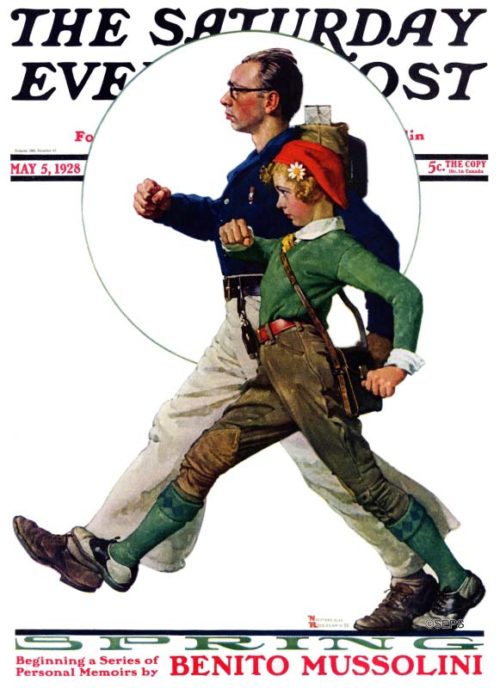
Norman Rockwell
May 5, 1928
This father and daughter duo was painted by the Post’s most famous artist, Norman Rockwell. With their matching strides, these two are ready for their Spring walk.
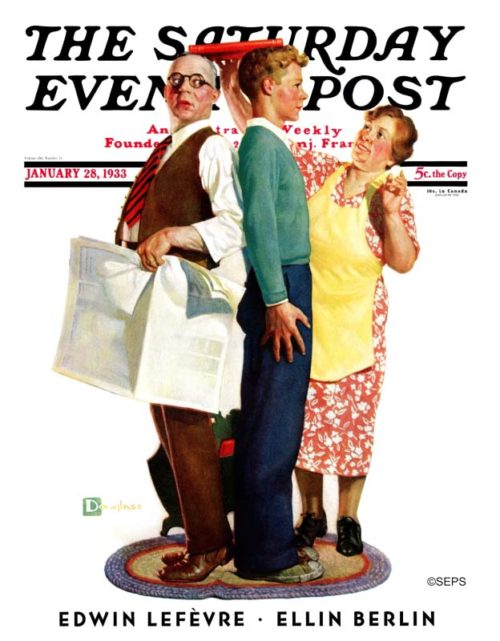
Douglas Crockwell
January 28, 1933
This 1933 cover was done by Post artist Douglas Crockwell. If the name didn’t confuse readers, this cover certainly did. Many people thought it was a Rockwell because of its close attention to detail, like the mother’s patterned dress.
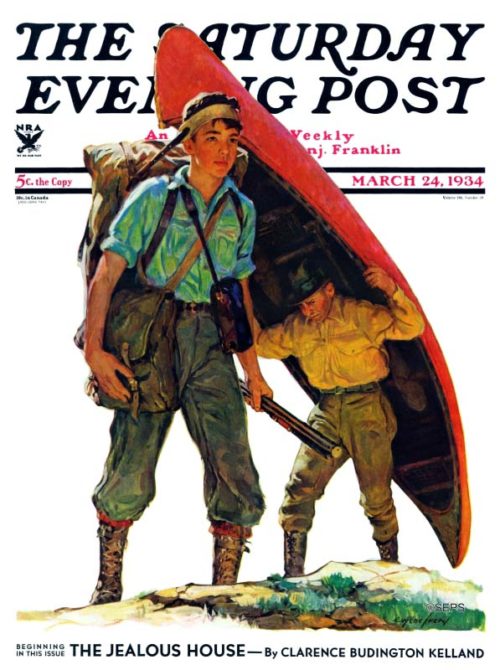
Eugene Iverd
March 24, 1934
This cover was painted by Eugene Iverd. Iverd typically painted children or boys at play, like this father and son ready to go canoeing. He also painted landscapes, which he signed with his birth name, George Erickson.
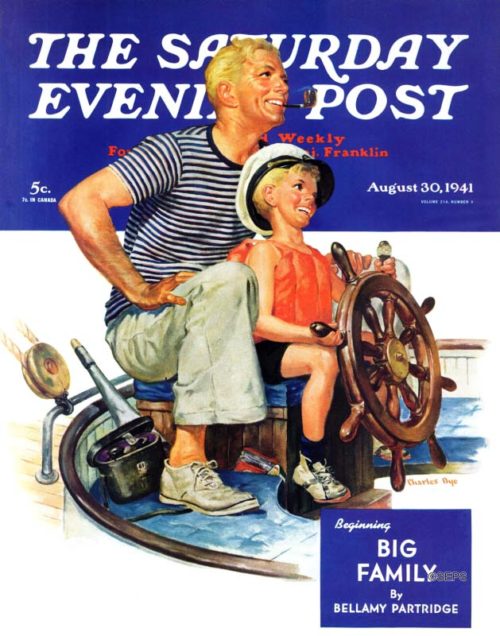
Charles Dye
August 30, 1941
These father and son sailors are the subjects of Charles Dye’s only cover for the Saturday Evening Post.
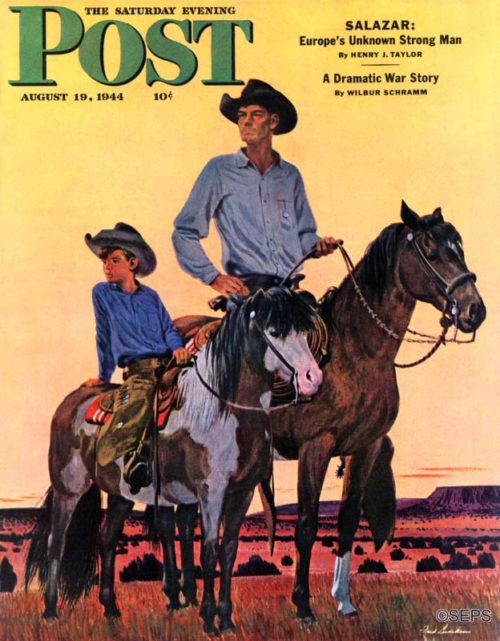
Fred Ludekens
August 19, 1944
These two ranchers fit in perfectly with Fred Ludekens’ other Post covers. Horses were typically a major theme in his cover art, as well as people hard at work.
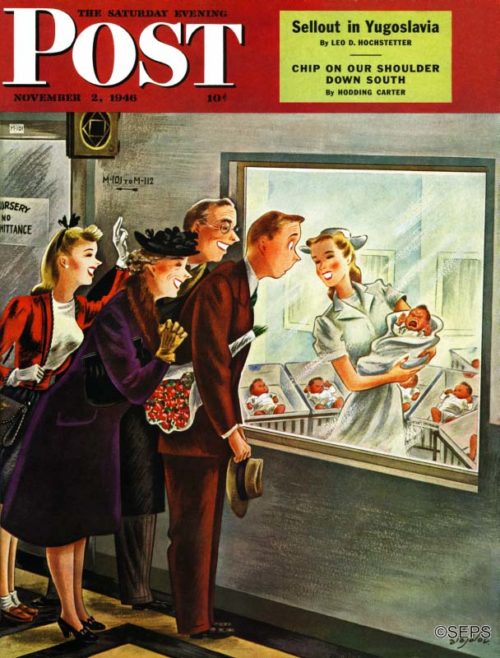
Constantin Alajalov
November 2, 1946
“That your baby you’re drawing?” a spectator asked artist Constantin Alajalov. “Yes,” said Alajalov, in a nice mixture of pride and modesty. He sketched another. “That one, too?” the onlooker asked in surprise. “Yes,” said Alajalov, and sketched in a third. The spectator wouldn’t ask about that one, and when the artist began sketching the fourth, the onlooker left.
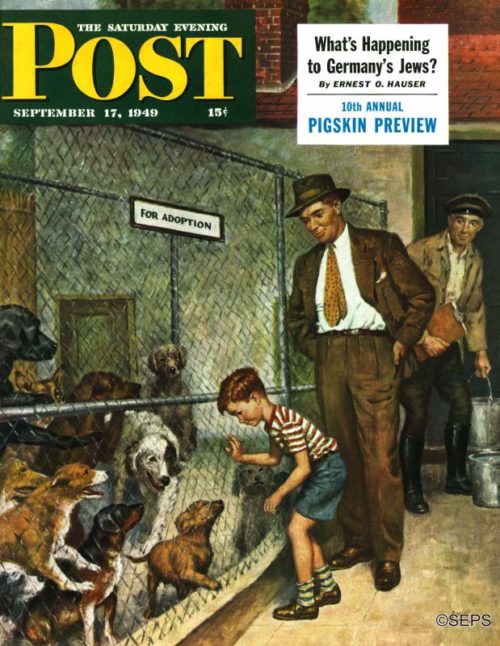
Amos Sewell
September 17, 1949
Amos Sewell has set this theme for his first Post cover at the Shelter, a refuge for homeless dogs conducted in Jamaica. Long Island, by the S.P.C.A. After Sewell had finished sketching and photographing detailshe found himself thinking awfully hard about one particular dog in the ”for-adoption” pen. But he resolutely pulled himself together and went back home alone-to the four Sewell cats.
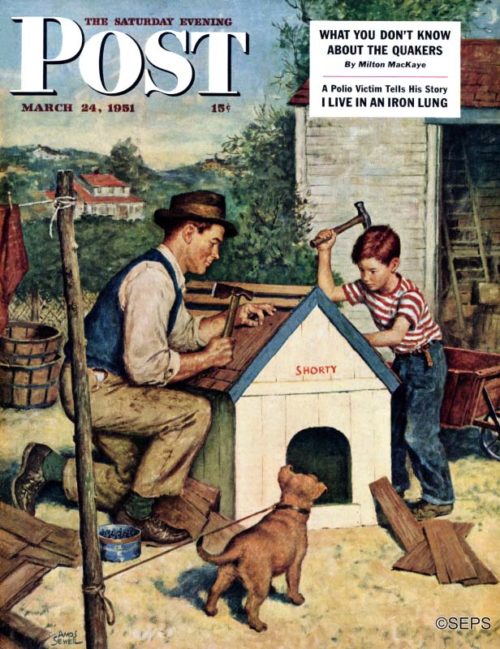
Amos Sewell
March 24, 1951
Sewell’s theory about this pleasant scene is that Shorty was adopted, not purchased, his previous home probably having been one of the SPCA’s shelters for homeless dogs. Shorty will hereafter have two homes, the big house where his favorite human beings live, and his own house, where he can retire when he wishes to be quite alone for unhindered rest or meditation.
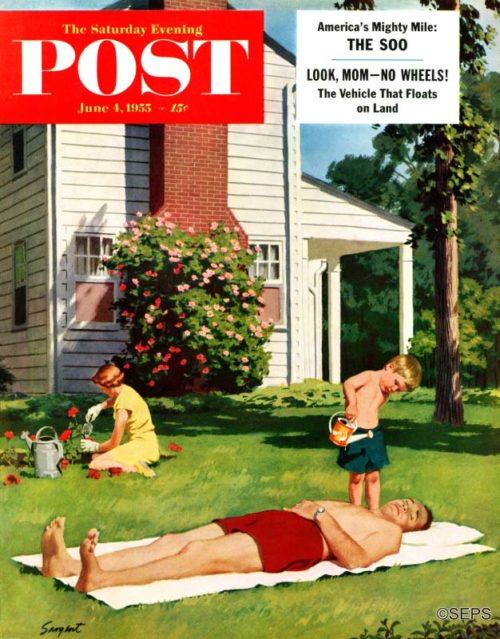
Richard Sargent
June 4, 1955
While dad bares his lily-white flesh, little does he dream that presently a sun shower will invigorate him.
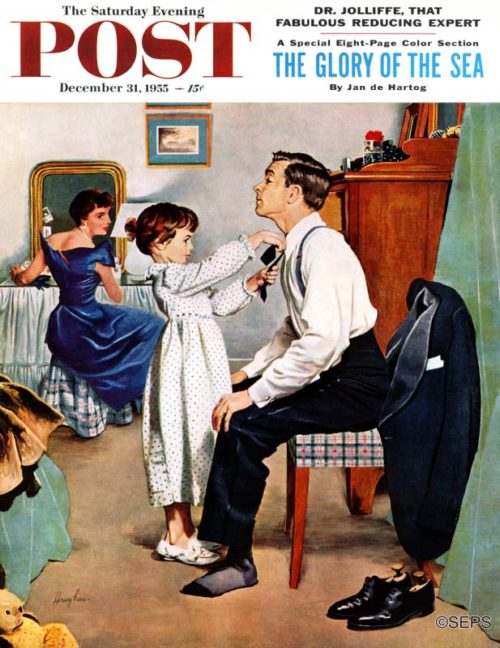
George Hughes
December 31, 1955
George Hughes painted this pre-New-Year party scene, where even the little one can participate in the celebration.
Cowpoke Covers
Our cover artists saddle up to capture the elusive cowpoke of the Wild West. Whether you played rodeo as a child or are a real-life bronco rider, this week’s cover collection is sure to please.
A good cowboy is a resourceful cowboy. And a good horse knows when to stand still.
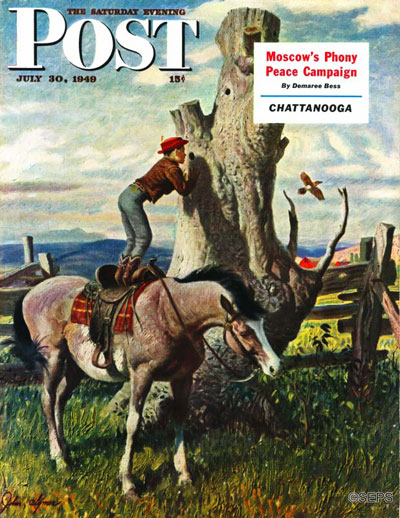
July 30, 1949
Saddle up, partner! This cowgirl looks like she can hold her own.
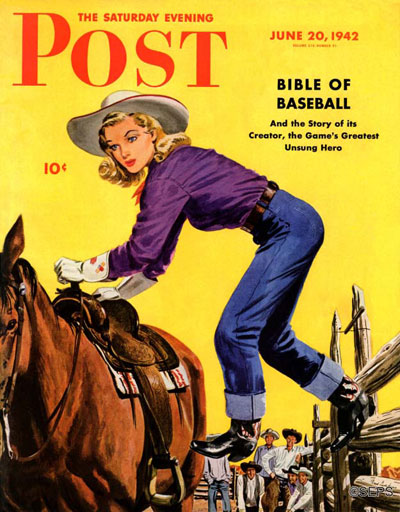
June 20, 1942
These three little gunslingers may be the fastest hands in the neighborhood, but any make-believe cowboy worth his weight in cap guns knows that true grit is determined by how long you can play dead without opening an eye.
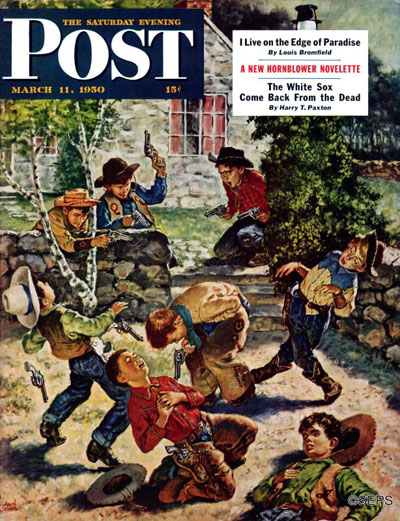
March 11, 1950
Lights, camera, action! To play a cowboy, not only is it important to act the part, you have to look it, too. Bring on the lipstick.
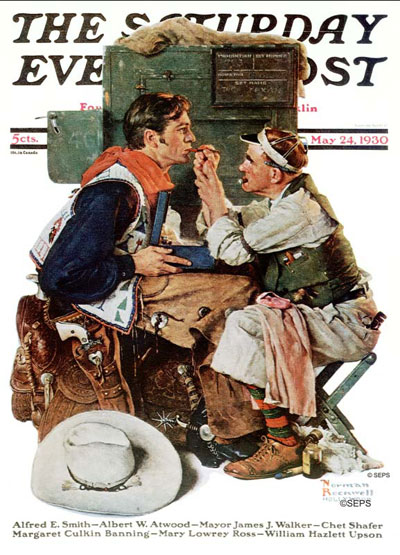
May 24, 1930
Who doesn’t adore a good old-fashioned cowboy? Clearly, this cowpoke knows his duds will never go out of style.
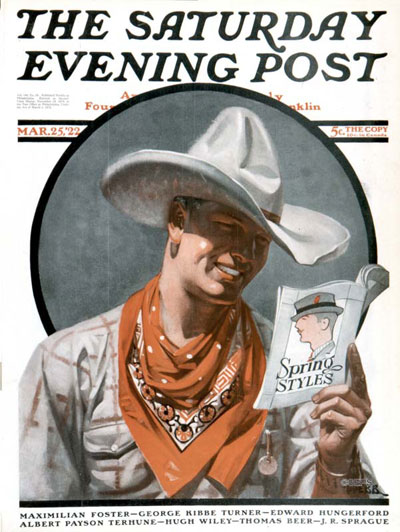
March 25, 1922
Working hard or hardly working? Judging by that pool of water and the boy’s flushed face, we’re going with the former.
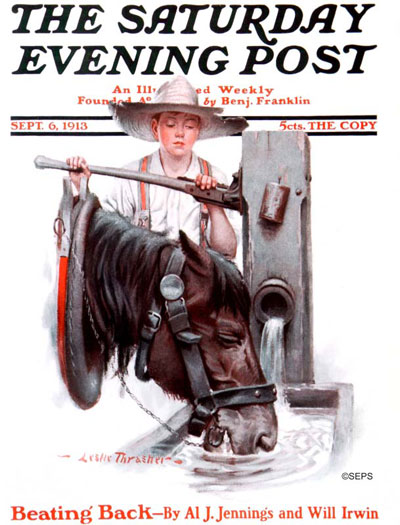
September 6, 1913
That little cowboy must taste as sweet as he looks — prior to the tears, of course.
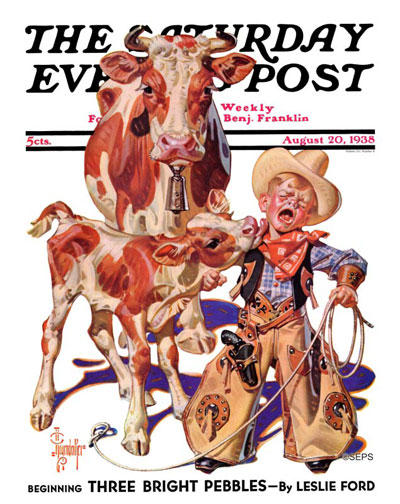
August 20, 1938
ck out the September/October 2015 issue for a look at works of Howard Terpning, one of the today’s masters of Western art.